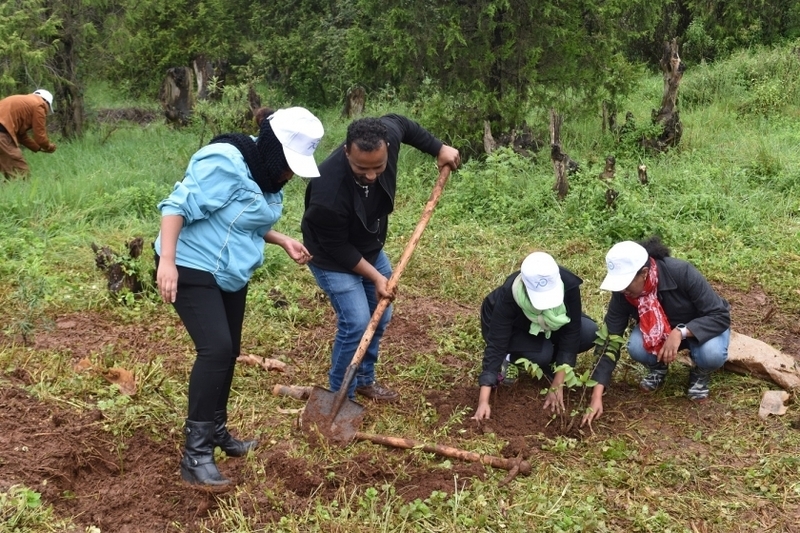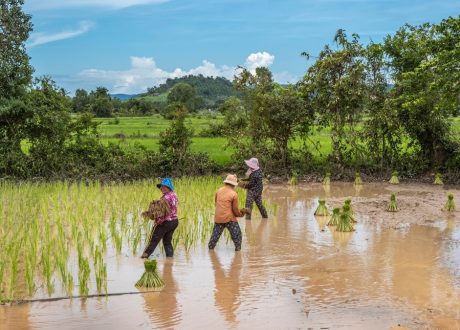
New ISO ESG Implementation Principles provide int’l guidance to streamline ESG practices
New ESG Implementation Principles launched the International Organization for Standardization (ISO) at the 29th United Nations ...

Ethiopia has recently broken a new world record by planting over 350 million trees in a single day within the framework of an ambitious tree-planting program to combat climate change.
Under the country’s National Green Development program—launched in May 2019 in a bid to combat climate change and environmental degradation—Ethiopia plans to plant 4 billion trees on 1.5 million hectares across the country: 40 trees per person.
“Climate change impacts have greatly affected Ethiopia in terms of flooding, drought and food insecurity,” says Margaret Oduk, Program Coordinator of UN Environment Program’s (UNEP) Liaison Office to the African Union Commission, the United Nations Economic Commission for Africa, and Ethiopia.
“On one hand, lowland areas are experiencing increased temperatures and prolonged droughts which in turn affects livestock rearing. On the other hand, highland areas are experiencing more intense and/or irregular rainfall, which together with high temperatures result in decreased agricultural production.
“In 2017 alone, the country lost over 2 million animals due to drought. Furthermore, environmental degradation—exacerbated by increased human use of land, unsustainable agricultural practices, indiscriminate grazing of animals and the collection of firewood for household energy—has contributed to reduced land cover and protection against soil erosion, which in turn is further reducing forest cover,” she says.
The government recently established a five-member expert group to monitor and assess the tree-planting program. Members are drawn from four ministries, the United Nations Development Program, as well as Ethiopia’s Environment, Forest and Climate Change Commission. The plan is to devolve responsibility to relevant institutions and local authorities for planting, monitoring progress, and improving the survivability of seedlings.
Ethiopia has a huge and youthful population, with 69 per cent of its 104 million people under the age of 29. The prime minister has called for youth to engage voluntarily in their respective communities to support the campaign.
Currently, the United Nations is not monitoring Ethiopia’s tree-planting efforts. “However, as we start the UN Decade on Ecosystem Restoration 2021–2030, the Food and Agriculture Organization of the United Nations and UNEP will start to collect data on ecosystem restoration actions that countries take. A current starting point is the Bonn Challenge Barometer,” explained UNEP ecosystems expert Tim Christophersen.
Ethiopia has pledged to restore 15 million hectares of degraded forests and landscapes by 2030, as part of the “Bonn Challenge”.
“This amount of land will be more than sufficient to absorb 4 billion trees,” said Christophersen. According to a study published in Science in July 2019, there is space for up to 1 trillion additional trees globally, on 0.9 billion hectares of land.
“It is important to note that planting trees and using land for other purposes, such as agriculture, are not mutually exclusive. Agroforestry is the science of combining tree growing with agriculture, often resulting in higher food yields and/or better-quality soil. For example, shade-grown coffee does well,” said Christophersen.
“There are also a number of trees across Africa and elsewhere that can fix nitrogen from the atmosphere as fertilizer in the soil, and thus support agricultural productivity. It would be a mistake to assume that more trees would necessarily mean less agriculture. Sustainable agriculture and forestry practices will need to be a big part of restoration in Ethiopia and in other countries,” he added.

India’s Ecoplore encourages more eco-friendly hotels as tourism accounts for 8% of CO2
New ESG Implementation Principles launched the International Organization for Standardization (ISO) at the 29th United Nations ...
PUMA has already made strong progress in reducing its greenhouse gas emission over the past ...
The United Nations Trade and Development (UNCTAD) urged during the 29th United Nations Climate Change ...


اترك تعليقا